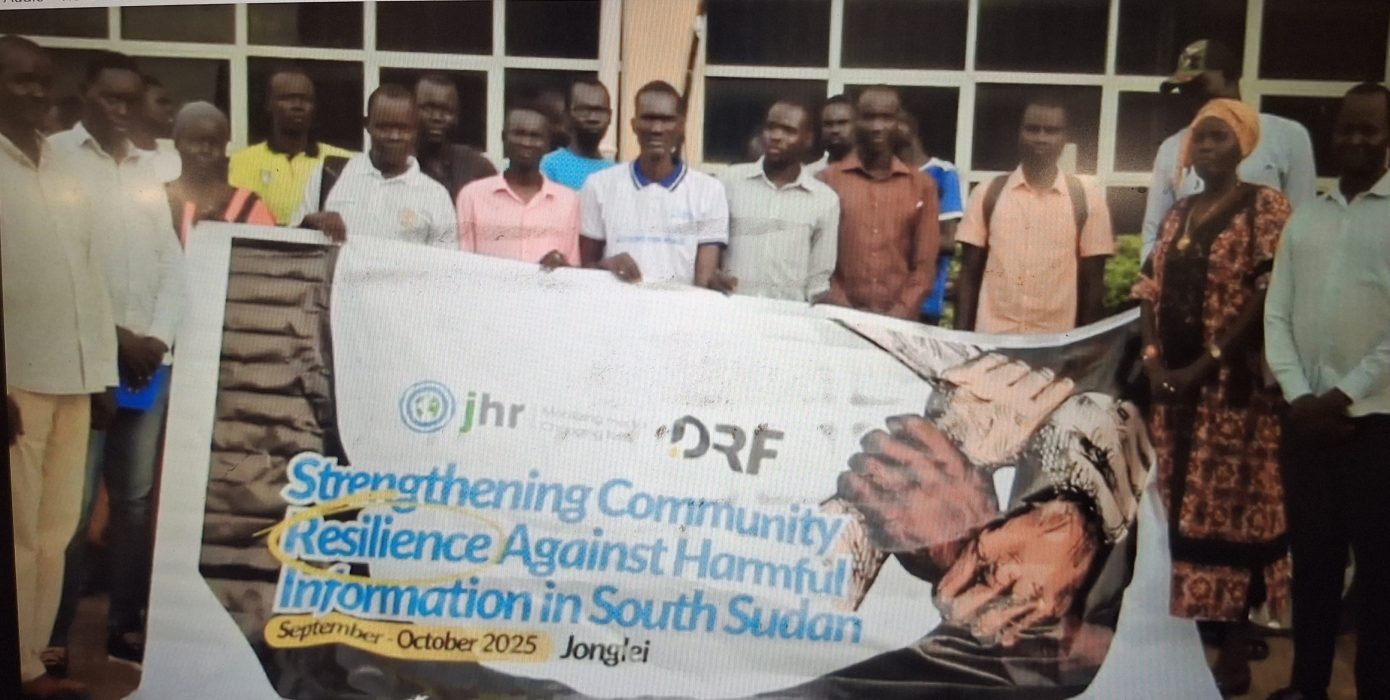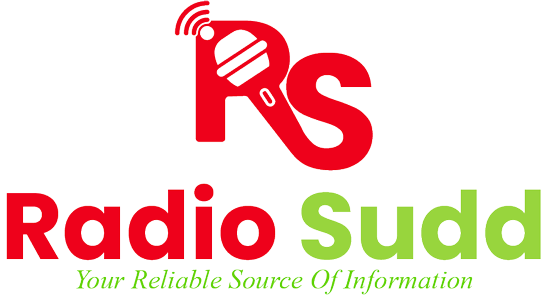
By Deng Ghai Deng
Bor, South Sudan —Digital Rights Frontlines (DRF), in partnership with Journalists for Human Rights (JHR), has trained 50 community members with skills to critically assess and verify information in Bor, Jonglei State.
The initiative is part of the ongoing project, “Strengthening Community Resilience Against Harmful Information in South Sudan,” supported by Journalists for Human Rights (JHR).
The training brought together participants, including community leaders, civil society actors, and journalists, which equipped them with the tools to critically assess and verify information. In a country grappling with the corrosive effects of false narratives and online disinformation and hate speech, such initiatives are increasingly useful for social cohesion and peacebuilding.
“This training is going to be helpful because I will use this opportunity to engage my community on how information can be passed,” said Rhoda Nyankiir, acting chairlady of the Jonglei Women’s Network. “Some misinformation leads to violence, disunity, and division among communities. It is good for us to identify the root causes and deal with them to ensure peace and sustainability.”
Nyankiir plans to use her new knowledge to identify and calmly counter misleading information and hate speech that targets or divides women’s groups, ensuring discussions are based on facts, not rumors.
Peter Kuol Kuch, a journalist with Radio Voice of Reconciliation, admitted that verifying information has been difficult, especially with unvetted content spreading rapidly on social media.
“It has been a challenge getting accurate information. Sometimes, we pick something from social media, and it’s hard to know whether it’s true,” he said. “This training helped me understand how to verify information quickly without compromising journalistic integrity.”
South Sudan, which has struggled with political instability and intercommunal violence, remains particularly vulnerable to harmful information circulating via social media and other informal channels. In this digital age, DRF media literacy trainers say, the ability to filter fact from fiction is not just a journalistic skill—it’s a necessity for community survival.
Samson Ngor Wal, a DRF trainer, said the training’s impact goes beyond just raising awareness. “This project is about strengthening the capacity of civil society and community-based organizations to handle information accurately,” Ngor explained. “Because in the digital age, information has become detrimental to the communities if it is misused. So this training has really impacted the participants and we hope once they depart from this training, they will deliver to the community. And this is not going to be the end.”
The project is a multi-state effort, with DRF and JHR implementing the training across five states in South Sudan: Jonglei (Bor), Western Equatoria (Yambio), Upper Nile (Malakal), and Western Bahr El Ghazal (Wau), and Unity State while targeting 50 community members in each state.

